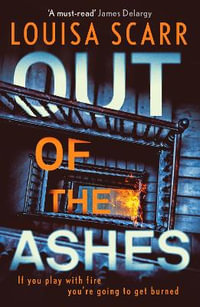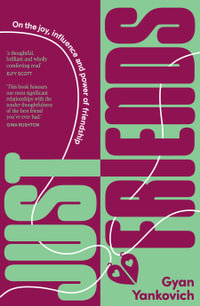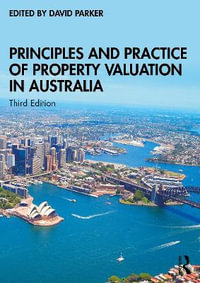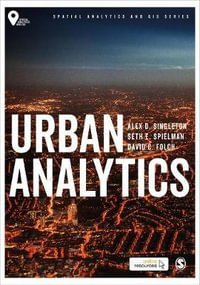
When a Heart Turns Rock Solid
The Lives of Three Puerto Rican Brothers On and Off the Streets
By: Timothy Black
Paperback | 15 September 2010 | Edition Number 1
At a Glance
464 Pages
20.4 x 13.2 x 2.6
Paperback
RRP $45.00
$37.25
17%OFF
or 4 interest-free payments of $9.31 with
orAims to ship in 25 to 30 business days
This provocative and compelling book examines how jobs, schools, the streets, and prisons have shaped the lives and choices of a generation of Puerto Rican youth at the turn of the twenty-first century.
At the center of this riveting account–based on an unprecedented eighteen-year study–are three engaging, streetwise brothers from Springfield, Massachusetts: Fausto, incarcerated for seven years and in and out of drug treatment, an insightful and sensitive street warrior playing on the edges of self-destruction; Julio, the family patriarch, a former gang member turned truck driver, fiercely loyal to his family and friends; and Sammy, a street maven, recovering drug addict, father of four, straddling two realms–the everyday world of low-wage work and the allure of the drug economy–as he shuttles between recovery and relapse.
Timothy Black spent years with the brothers and their parents, wives and girlfriends, extended family, coworkers, criminal partners, friends, teachers, lawyers, and case workers. He closely observed street life in Springfield, including the drug trade; schools and GED programs; courtrooms, prisons, and drug treatment programs; and the young men’s struggle for employment both on and off the books. The brothers, articulate and determined, speak for themselves, providing powerful testimony to the exigencies of life lived on the social and economic margins. The result is a singularly detailed and empathetic portrait of men who are often regarded with fear or simply rendered invisible by society.
With profound lessons regarding the intersection of social forces and individual choices, Black succeeds in putting a human face on some of the most important public policy issues of our time.
About the Author
Timothy Black is an associate professor of sociology at the University of Hartford, where he directs the Center for Social Research. He lives in Hartford, Connecticut.
Industry Reviews
Booklist Editor's Choice Best Books of 2009
"Along with narrative drama, Black offers analysis. It's not dry, however. And his emphasis on Puerto Rican brothers is eye-opening. . . . These mean streets could be Piri Thomas's or Martin Scorsese's. . . . Black relies on oral history. Swaths of his book are given over to dialogue he often presents in script form. And I applaud his choice to allow the men to express themselves. . . . We hear voices we don't normally hear, and the book is filled with the poetry of the street. . . . The talk is cinematic, even when the data are not. The oddly melodious outbreaks of profanity are honest and, in their own way, poetic. These are the stories of the new America."
--Luis Urrea, The Washington Post
"The book succeeds because author Timothy Black make readers care about his subjects. . . . Captivating."
--San Francisco Chronicle
"The twisting story lines and intriguing subplots from the Rivera brothers and their peers are good enough to compete with any series on HBO."
--Hartford Advocate
"This ethnographic investigation into the processes that keep so many minorities in the United States in poverty and deprviation is an extraordinary, insightful, and gripping read. . . . Black's story is well told, at times both suspenseful and heartwrenching. . . . Profound." --Jose Ramon Sanchez, Contemporary Sociology
"Through the Rivera family, Black examines the interplay of economics and social policy that has made it more difficult for low-income Americans to progress into the middle class. Black explores the troubled history of the U.S. and Puerto Rico, as well as the decline of the industrial base at a time when the nation was cracking down on crime and drug addiction. Sociology, economics, history-and powerful human emotions-are all layered in this fascinating look at poverty and the life of one American family."
-Booklist (starred review)
"A sociologist examines the lives of marginalized Puerto Rican youths in Springfield, Mass., connecting their stories to the economic, cultural and political factors that shaped them. . . . The author's clear portraits of his subjects, his empathy for them, his pride in being accepted and even sometimes protected by them and his anger about the institutions and policies that have shaped their world give an immediate, powerful human dimension to their stories. An impressively long-term, diligent sociological study. . . ."
-Kirkus
"The men in Timothy Black's alarming yet compelling book don't stand still. They move from place to place; sometimes they are forced to move; and they are moved by traces of their own past. In a richly painted canvas, we see how profoundly history and the economy shapes the lives of these Puerto Rican brothers and how they respond to many imperfect moments."
-Carol B. Stack, author of All Our Kin and Call To Home
"When a Heart Turns Rock Solid is an amazing book. I couldn't put it down. Black practically takes the reader with him into the barrios in which he conducted the study. The result is an unforgettable portrait of the everyday life and the every other day crises of poor adolescents growing up in a neighborhood in which many men end up as drug dealers and prisoners. The book is sociology and ethnography at its finest: as graphic as a documentary and as spell binding as a novel. It should be read by the general public as well as by scholars and students. In a time of widespread economic troubles, Timothy Black reminds us dramatically of how much worse the permanently poor have it every day of their lives. Black's book is a shocking reminder that the American Dream has been withheld from so many Americans."
-Herbert J. Gans, Robert S. Lynd Professor Emeritus of Sociology, Columbia University, and author of Imagining America in 2033
"When a Heart Turns Rock Solid will break your heart, and it won't-and shouldn't-let any of us off the hook. This new, important book about poor people in America is an enlightened and anguished indictment of structural violence. Ethnographer Timothy Black brings us into the Rivera family and offers vivid portraits of brothers Fausto, Sammy and Julio. He explains how the very same structural and systemic forces that benefit some of us have all too horrific effects on the marginalized, racialized poor. These forces are neither impersonal nor invisible; as Black reveals, they are all too real and deeply, painfully personal."
-Alisse Waterston, Professor, John Jay College of Criminal Justice, CUNY, and author of Love, Sorrow and Rage: Destitute Women in a Manhattan Residence.
"Nearly two decades ago, Timothy Black undertook an ethnographic study of a family that had migrated from the hills of Puerto Rico to New England in search of a better life. His life became intertwined with theirs, and especially with the lives of the young sons who tried to wend their way between poor schools, a deteriorating job market, the temptations of the street with its dangerous offerings of escape, respect and money, and the entrapments of our burgeoning penal system. This observant and thoughtful book is the result of half a lifetime of keen observation and boundless empathy for a world most of us know only from statistics, and it is a must read!"
-Frances Fox Piven, author of Poor People's Movements and Regulating the Poor
"This timely book starts where In Search of Respect leaves off, and reveals the human faces of the suffering caused by the escalation of the War on Drugs in America. The author sensitively portrays the overwhelming challenges faced by second generation Puerto Rican immigrants in the nightmare of the American neo-liberal dream. Through his warm, long-term friendships with three Puerto Rican brothers, he brings alive the brutal effects of America's failed policies toward the urban poor at the turn of the 21st century."
-Philippe Bourgois, University of Pennsylvania
"When a Heart Turns a Rock Solid is a fascinating exercise in immersion ethnography. Black spends years of his life following three Puerto Rican brothers, and their affiliates, as they navigate a world of truncated educational opportunity, economic insecurity, drug and gang involvement, jail and prison. He reports on the challenges experienced by his subjects, and the life choices they make, with humility and common sense. The stories are intimate, yet written against a broad canvas of economic and political change. The overall effect is to draw readers in, both to the lives described and the wider world of poverty and marginalization. Black's work is comparable to that of Adrian LeBlanc's writing in Random Family and to Sudhir Venkatesh's Off the Books. It pulls back the veil on a world largely hidden to outsiders."
-Sasha Abramsky, author of American Furies: Crime, Punishment and Vengeance in the Age of Mass Imprisonment
"This is a vivid and poignant portrait of everyday reality for poor Puerto Rican men. For two decades Timothy Black documented the lives of three brothers, their relatives, and friends, bringing them alive as real human beings with hopes, fears, mistakes, setbacks, and successes. No sugarcoating here, as this ethnography follows men across the difficult streets and social institutions-workplaces, schools, prisons, rehabilitation sites-where they live often troubled and dangerous lives. Ultimately revealed is a coercive society much more concerned with policing and prisons than with people whose lives are trashed by age-old processes of class and racial oppression."
-Joe R. Feagin, Ella C. McFadden Professor of Liberal Arts, Texas A & M University and author of Systemic Racism: A Theory of Oppression
Some memories don't fade with time. Sixteen years ago I returned home from the university in the inattentive manner that accompanies daily routine, pushed the message button on my answering machine, and began shuffling around the kitchen to start dinner. As I peered into the refrigerator, the third message rolled up, “Tim, it’s Fausto, I fucked up, I'm in jail, come see me.”
Fausto Rivera was among a group of young men I had met three years before, in 1990, while evaluating a school dropout prevention program in Springfield, Massachusetts. Very rapidly, our relationship spilled out of the schools and onto the basketball courts and neighborhood streets of Springfield, where we spent hours talking about our lives. Fausto was engaging and inquisitive—qualities that seemed to stand in sharp contrast to his inability to read or write. The determination of this fifteen-year-old boy was expressed one spring afternoon: "We got a saying in Spanish, 'La fe mueve las montañas.' It means hope moves mountains." One year later, Fausto left school and became more deeply involved in Springfield's underground drug economy. At eighteen, addicted to heroin, he went on a ten-week robbing spree that ended in a failed bank heist and a ten-to-twelve year prison sentence.
Fausto's life carves out a unique pathway; after all, it is his life, based upon a series of events, choices, and contingencies. Yet, despite the particulars of Fausto's story, many others have taken similar paths—their lives exist within the social grooves that are created and reproduced through public policy, economic opportunities, social institutions, and cultural practices. These pathways developed within the context of Springfield's deepening crisis for Puerto Rican youth in the early 1990s. The number of Puerto Ricans in Springfield nearly doubled in the 1980s and the median age of the population was merely twenty-one (twelve years younger than the white population in Springfield). The Puerto Rican school dropout rate in the late 1980s was around 50 percent, as was Springfield's Hispanic poverty rate. And then the recession hit. At the height of the 1991 recession, the formal unemployment rate in Springfield reached 10 percent, dimming future job prospects for Puerto Rican youths and prompting one Springfield leader to refer to Fausto's cohort as the "lost generation." Not surprisingly, street activity escalated during this period and exploded into gang warfare in 1994. Fausto was just one of many. By the time Fausto was released from prison in 2000, the Massachusetts inmate population had more than quadrupled in the prior twenty years and Latinos were being incarcerated at more than six times the rate of whites.
Of course, the social currents that shaped the lives of young Puerto Ricans in Springfield did not deposit Fausto's entire generation in Massachusetts jails. In fact, the economic recovery that began in 1991 and lasted for a decade eased oppressive conditions in Springfield. Some of the men, including Julio Rivera, Fausto's older brother, left the street economy and found jobs in the expanding labor force. In 2007, Julio had been driving a tractor- trailer for more than ten years and had secured a unionized job that paid nearly $20 an hour, while his wife worked as a bank teller. As testimony to their success, they became homeowners in 2006, albeit two years before their variable interest rate jumped and they joined the millions of homeowners trying to hold on to their homes amidst the subprime mortgage crisis.
Getting to this stage in Julio's life, however, had not been easy, nor had it followed a straight trajectory. In the early 1990s, out of work and desperate, Julio held a gun to the head of a novice drug dealer and robbed him of $5,000. In the heat of Springfield's gang wars, he was made "godfather of the Warlords" by the street gang La Familia. His transition from the streets to working- class stability depended on a number of contingent factors, including his access to job information about the trade from an informal network of men who hung out nightly on "the block," the deregulation of the trucking industry in 1980, which opened up more driving jobs for Latinos, and the tight labor market in the late 1990s.
Also no stranger to "the block," the youngest and most street involved of the Rivera brothers, Sammy, negotiated these circumstances in Springfield somewhat differently. Foundering in schools in Yonkers, New York, during their court-ordered school desegregation initiatives in the 1980s, Sammy gravitated to the streets at an early age, escaping the radar of his parents and brothers. By the time the Riveras reached Springfield, Sammy had already acquired a delinquent identity that provided peer status and respect in a world lacking in these opportunities. Living in one of Springfield's most ethnically isolated and neglected neighborhoods, Sammy made street connections quickly and his budding street identity was nurtured by one of Springfield's drug kingpins, who would become his mentor. Heroin-addicted and gang-involved in the early 1990s, Sammy ironically managed to avoid prison until he had begun to "age off " the streets in his late twenties.
Today, Sammy's life straddles the streets and the low-wage economy. He completed a three- year prison stint in 2005 for a drug arrest, after which he moved back in with his partner and their child. Upon release and branded with a felony conviction, Sammy looked unsuccessfully for work for months. Finally he threw down the gauntlet, insisting that if a manager of an assembly plant didn't hire him, he was "going back to do what I know best." In 2007, he had been working at the plant for nearly two years, where his salary had increased from $8 to $11 an hour, but without employee benefits. His partner, more stably employed, helped create a family environment where Sammy spent more time with Sammy Jr. and less time on the streets.
This book illustrates the interplay of political, economic, and cultural dynamics that shape the lives of the Rivera brothers, their family, and a network of mostly Puerto Rican men, and examines the strategies that they adopt to negotiate their social conditions. To understand the circumstances through which the drama of their lives unfolds, however, we need to consider the political and economic changes that occurred in the latter part of the twentieth century and particularly the backdrop that jobs and prison created in their lives.
| Introduction | p. ix |
| List of People in the Book | p. xxxvii |
| Social Marginalization | |
| "I Am a Jibaro, but I Get My Hair Cut in the City" | p. 3 |
| The Lost Generation | p. 24 |
| Bilingual Education and the School Dropout | p. 51 |
| The Tail of the Drug Trade | p. 70 |
| Jobs | |
| The Block | p. 107 |
| Leaving the Streets | p. 137 |
| Transitions | p. 169 |
| Living Through the Urban Drug War | |
| The Prison Pipeline | p. 209 |
| Rebel Without a Cause | p. 230 |
| When a Heart Turns Rock Solid | p. 267 |
| Good and Bad | p. 298 |
| Conclusion | p. 336 |
| Acknowledgments | p. 351 |
| Notes | p. 353 |
| Index | p. 399 |
| Table of Contents provided by Ingram. All Rights Reserved. |
ISBN: 9780307454874
ISBN-10: 0307454878
Published: 15th September 2010
Format: Paperback
Language: English
Number of Pages: 464
Audience: General Adult
Publisher: RANDOM HOUSE US
Country of Publication: US
Edition Number: 1
Dimensions (cm): 20.4 x 13.2 x 2.6
Weight (kg): 0.35
Shipping
| Standard Shipping | Express Shipping | |
|---|---|---|
| Metro postcodes: | $9.99 | $14.95 |
| Regional postcodes: | $9.99 | $14.95 |
| Rural postcodes: | $9.99 | $14.95 |
How to return your order
At Booktopia, we offer hassle-free returns in accordance with our returns policy. If you wish to return an item, please get in touch with Booktopia Customer Care.
Additional postage charges may be applicable.
Defective items
If there is a problem with any of the items received for your order then the Booktopia Customer Care team is ready to assist you.
For more info please visit our Help Centre.
You Can Find This Book In
This product is categorised by
- Non-FictionSociety & CultureSocial Issues & ProcessesPoverty & Unemployment
- Non-FictionEarth Sciences, Geography, Environment, PlanningGeographyHuman GeographyEconomic Geography
- Non-FictionSociology & AnthropologySociologySociology & Customs & Traditions
- Non-FictionSociology & AnthropologyAnthropologySocial & Cultural Anthropology, Ethnography
- FictionModern & Contemporary Fiction
- Non-FictionSociety & CultureSocial GroupsEthnic StudiesHispanic & Latino Studies
- Non-FictionSociety & CultureSocial GroupsGender StudiesGender Studies: Men and Boys
- Non-FictionLiterature, Poetry & PlaysNon-Fiction Prose
- Non-FictionSociety & CultureSocial GroupsUrban Communities
- Non-FictionHistoryRegional & National HistoryHistory of the Americas























